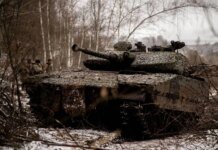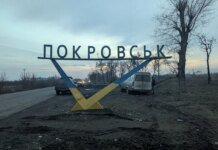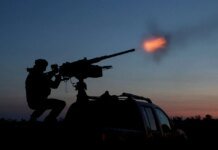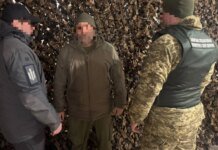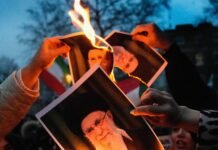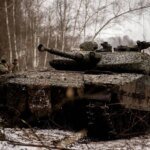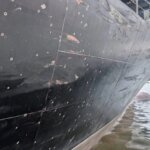The European Union must radically transform due to Putin's provocations and Trump's semi-detachment. EU countries are looking for ways to counter the Kremlin's aggressive rhetoric.

The provocations of Russian dictator Vladimir Putin and the semi-detachment of White House chief Donald Trump are forcing the European Union to radically transform. EU countries must find a way to counter the aggressive rhetoric of the Kremlin, writes UNN with reference to Politico.
Details
The military threats against which the Copenhagen meeting will take place could hardly be more ominous. Not only have Russian fighter jets flown into NATO airspace, prompting Trump and EU leaders to publicly support the idea of shooting them down, but the airport of the Danish capital itself, where dozens of leaders and officials will arrive, suffered serious disruptions last week due to mysterious drones, which Denmark called a "hybrid attack."
European Commission President Ursula von der Leyen insisted on an unprecedented discussion at the summit of the EU's military potential, which goes far beyond the bloc's traditional focus on trade, antitrust issues, and economics. Among the options announced are the creation of a "drone wall," a system that will detect, track, and shoot down drones, as well as projects that provide a rapid response to aircraft invading European skies.
Putting fighters in the air is a NATO task. The EU's task is to be ready to be in the right position when we have to react – to increase our readiness and have the tools to be able to react to threats when necessary, strengthening common tools and capabilities in the face of a common threat.
– said a senior EU official.
This meeting is the first since June, when 27 EU leaders gathered in Brussels. The three months that passed after the meeting between Trump and Putin in Alaska gave a brief glimpse of optimism, but soon returned to saber-rattling and even more threatening behavior than before. With a second summit planned in Brussels for late October, the bloc wants real solutions to strengthen Europe's defense and provide funds to Ukraine.
We are not at war, but we are not living in peace either – Merz27.09.25, 01:40 • 3696 views
Recognizing the risk posed by Moscow is the easy part, but how to respond in an EU full of competing priorities is another challenge. At least they can agree on the essence: do nothing that would make a full-scale war more likely.
"The task of European leaders in Copenhagen is to find a balance of deterrence with a Russian leadership that is increasingly risk-prone, which will allow such incidents to be effectively managed so that they do not escalate into a crisis or potentially a conflict. This is very difficult when the US president, the largest ally in the NATO alliance, says: 'Feel free to shoot down [Russian planes], but whether I will support you, I don't know,'" said Raphael Loss, a research fellow in defense policy at the European Council on Foreign Relations think tank.
And yet, this more dangerous phase of European politics is fraught with potential disasters. Privately, officials have expressed concern about the prospect of a "Franz Ferdinand moment," where a sudden escalation threatens to drag the continent into conflict, like the 1914 assassination of the Archduke that sparked World War I. Poland scrambled fighter jets and temporarily closed part of Polish airspace on Sunday after a Russian attack on Ukraine that President Volodymyr Zelenskyy said lasted more than 12 hours. Calling on Europe to strengthen its defenses, Zelenskyy warned that the Kremlin was targeting even countries outside Ukraine.
Putin will not wait to finish his war in Ukraine — he will open some other direction. No one knows where.
– said Zelenskyy.
If the basics of defense gain general consensus – even if Europe is divided between a crumbling centrist movement and a growing populist right – how to pay for what happens next pits leaders against each other. Turning the EU into an effective global power costs money, and not all capitals agree on how much exactly should be spent, let alone on what.
Military leaders insist that Europe is already dealing with a low-intensity war with Russia. Historically, they say, wars have only been won through national debt — and a signal that the EU is willing to spend money could be part of deterrence.
But giving the EU a larger budget to spend on anything has rarely been popular, and even less so now that national leaders have come to government with anti-European rhetoric.
While even Kremlin-friendly countries like Hungary and Slovakia welcome additional funds for weapons, training, and equipment as a boost to their economies, others, like Spain, downplay the risk of war in an attempt to protect their already strained budgets. The Netherlands, Sweden, and Germany are constantly concerned about additional borrowing to pay for military rearmament and aid to Ukraine.
NATO Chiefs of Staff meet to discuss Russian airspace violations27.09.25, 15:05 • 5920 views
But nothing focuses the mind like the threat of invasion. Diplomats said they hoped the growing threats would help make decisions they would previously have been reluctant to make.
It's a difficult balance because you don't want to scare people, but you want leaders to be aware enough of the risks to take them seriously.
– said a diplomat involved in European negotiations.
Time is not on the EU's side. Ukraine will face a budget deficit of about $23 billion next year, giving governments only a few months to provide a significant fund that can support Kyiv's military efforts. Von der Leyen believes she has found an answer in the form of a 140 billion euro "reparation loan" financed by sanctioned Russian funds. The money will come from Russian assets frozen by the EU since the beginning of the conflict in Ukraine in 2022.
Hungary's unreliability
Hungarian Prime Minister Viktor Orbán is blocking the EU's plan to confiscate assets, but the Commission believes it has found a legal loophole to exclude Hungary from the decision-making process. Leaders will discuss the plan on Wednesday, and then hope to reach an official decision at the second summit in late October.
Even Kremlin-friendly countries like Hungary and Slovakia welcome additional funds for weapons, training, and equipment as a boost to their economies.
The goal [in Copenhagen] is to garner enough support from other countries to isolate Orbán. We are in a gray area.
– said an EU diplomat.
The Copenhagen summit is another step in a new chapter of the EU's life. But what has not changed is how the bloc is still trying to get to the forefront, and how its capabilities seem small.
I don't think there's any interest in wanting to confront Vladimir Putin, to get into any war to defend "socialist Europeans. Europe, Russia, and Eurasia" at the Washington think tank Center for Strategic and International Studies. Having already imposed serious sanctions, Europe has no obvious "calming agent."
– said Max Bergmann, program director.
Addition
European Council President António Costa is seeking efforts to advance Ukraine's EU membership bid, despite Hungarian resistance, as leaders prepare for a crucial summit in Copenhagen this week.

